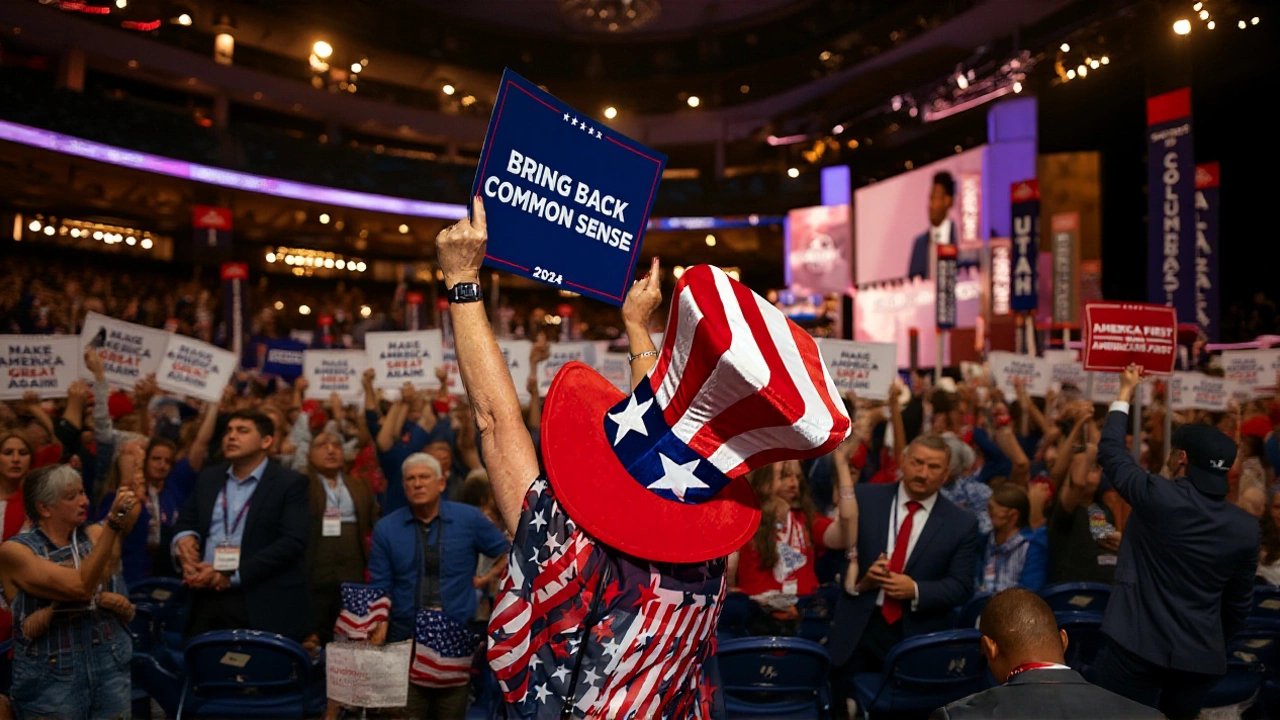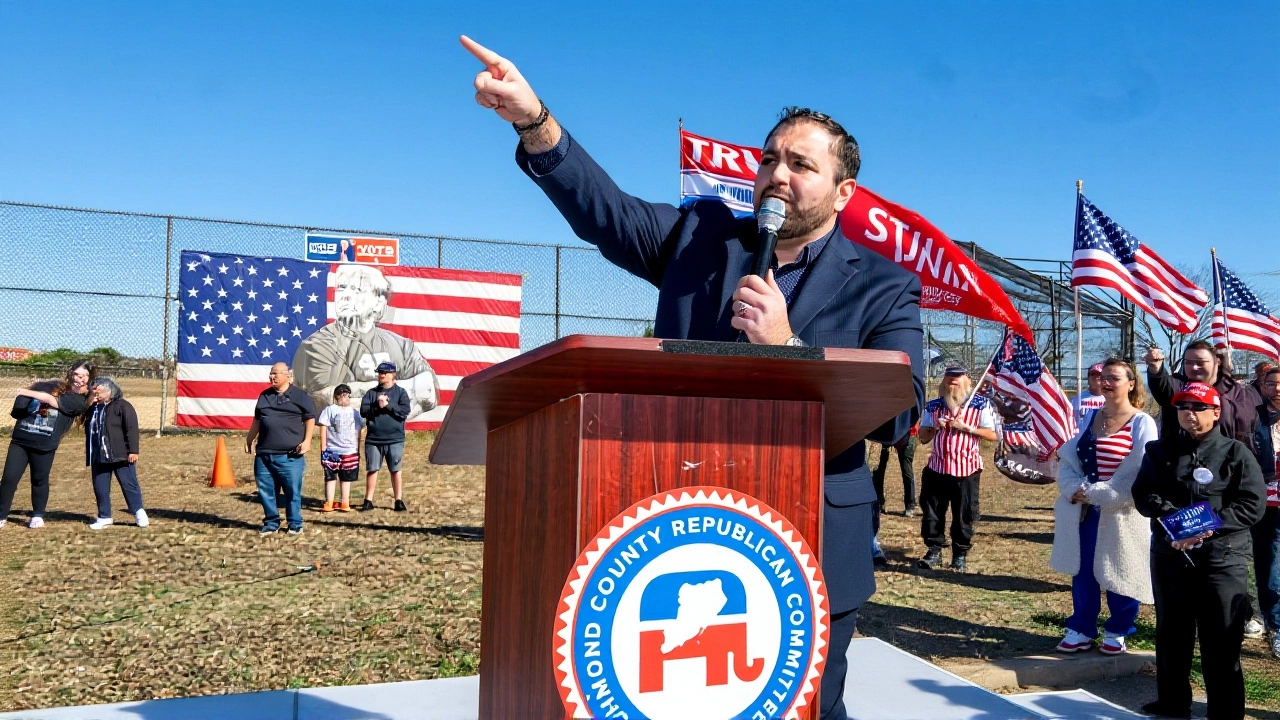When Peter Giunta, New York State Young Republican chair and Kansas chapter leader, created a private messaging thread to rally support for his bid to lead the Young Republican National Federation, the consequences were anything but private.
The leak, reported by Politico on October 15, 2025, exposed more than 28,000 messages riddled with racist, anti‑Jewish, homophobic and violent slurs. Over 250 instances of hate language were counted, ranging from the N‑word to explicit references to gas chambers.
Background: A Century‑Old Organization Under Fire
The Young Republican National Federation, founded in 1914 and headquartered in Alexandria, Virginia, serves members under 40 across all 50 states. Its chapters act as pipelines for future GOP leaders, giving students and young professionals a platform to network and influence policy.
Historically, the group has stayed out of the headlines—until now. The internal chat, originally intended for campaign strategy, became a digital time capsule of unchecked bigotry, showing just how far some junior members have drifted from mainstream party rhetoric.
Leak Details: What the Messages Revealed
The chat was launched sometime in early 2025, though the exact start date remains unclear. Members from New York, Kansas, Arizona, Missouri and Michigan joined, including Luke Mosiman, chair of the Arizona Young Republicans, and Hunter Hendrix, a former communications assistant for Kansas Attorney General Kris Kobach. General counsel Joe Maligno also participated.
- Giunta typed “I love Hitler” after a colleague joking about electing the “most right‑wing person” to helm the national body.
- Mosiman was mock‑taunted with a racist analogy about “monkey‑play ball,” a clear slur against Black people.
- Hendrix boasted, “Missouri doesn’t like f*gs,” implying homophobic sentiment was a badge of honor.
- Maligno responded to a comment about Chinese labor on railroads with “Let his people go! Keep the ch*nk s,” echoing anti‑Asian tropes.
Even more chilling, participants joked about “putting political opponents into gas chambers” and described the historical mass rape of Indigenous peoples as “epic.” The language was not merely crude; it was a coordinated chorus of hate that spanned state lines.
Immediate Reactions: From Condemnations to Deflections
Within hours of the story breaking, New York GOP figures stepped forward. Michael “Mike” Lawler, representing New York’s 17th congressional district, posted on X: “Those involved should resign from any leadership position immediately.”
Representative Elise Stefanik (NY‑21) had her senior adviser Alex deGrasse release a statement calling the chatter “heinous, antisemitic, racist and unacceptable.” Stefanik’s office, however, had earlier praised Giunta for “tremendous leadership” during the summer, a contrast that many observers noted.
Vice President J.D. Vance, appearing on a local news segment on October 16, downplayed the scandal, saying, “Kids do stupid things, especially young boys. They tell edgy, offensive jokes.” His remarks were seized upon by critics as evidence of the party’s tolerance for extremism.
On the left, the Staten Island Democratic Party blasted an unnamed Staten Island Republican, calling the language “disgusting,” “un‑American,” and demanding that anyone responsible be “out of a job and never allowed to work in politics again.”

Consequences: Jobs Lost and Legal Scrutiny
At least one direct employment action has been confirmed: Hendrix was terminated from his role in the Kobach office, according to ABC News. Other members’ employment statuses remain under review, with several state offices launching internal investigations.
The Young Republican National Federation’s national executive committee is reportedly convening an emergency session to consider expulsion of the implicated members. If expelled, those individuals could lose future access to a powerful political network that often serves as a stepping stone to elected office.
Legal scholars note that while private messaging is generally protected, the content could invite civil rights investigations if any members used their official positions to further discriminatory agendas.
Outlook: What’s Next for the GOP’s Youth Wing?
Experts say the scandal could accelerate calls for stricter oversight of youth political organizations. “We’re likely to see a push for mandatory code‑of‑conduct training and perhaps even background checks for chapter leaders,” says political analyst Dr. Maya Patel of the Brookings Institution.
The timing is also noteworthy: the leak dropped a day before a major evening news broadcast on October 16, amplifying the story’s reach. With the 2026 midterm elections looming, the GOP risks losing young talent or, conversely, doubling down on hard‑line rhetoric to rally its base.
For now, the immediate focus is on damage control—resignations, public apologies, and attempts to distance the broader party from the disgraced speakers. Whether those efforts will be enough to restore confidence in the Young Republican National Federation remains to be seen.

Key Facts
- Leak date: October 15, 2025
- Number of messages: >28,000
- Documented hate slurs: >250
- Primary figures: Peter Giuta, Luke Mosiman, Hunter Hendrix, Joe Maligno
- Immediate fallout: 1 confirmed firing, multiple resignations pending
Frequently Asked Questions
How does this scandal affect the Young Republican National Federation?
The federation faces potential expulsions of members, a credibility crisis, and pressure to adopt stricter ethics policies. Chapter leaders may be forced to resign, and the organization could see reduced recruitment as donors and alumni reassess their support.
What actions have been taken against the individuals involved?
Hunter Hendrix was fired from the Kansas Attorney General’s office. Other implicated members have either resigned or are under review, and the Young Republican National Federation is expected to hold an emergency meeting to decide on possible expulsions.
Why did Vice President J.D. Vance’s comments generate backlash?
Vance’s remarks downplaying the severity of the hate speech were seen as minimizing the impact of extremist rhetoric, fueling criticism that Republican leadership tolerates or excuses bigotry among its younger ranks.
What does this incident mean for future GOP candidates?
Prospective GOP candidates may face heightened scrutiny of their digital communications. Campaigns are likely to implement more rigorous vetting processes to avoid similar embarrassments, and voters may demand clearer stances against hate speech.
Will this scandal influence legislation on hate speech?
While federal hate‑speech laws remain limited, the episode could spur state legislators—particularly in New York and Kansas—to propose stricter penalties for public officials who engage in discriminatory language, or to require mandatory anti‑bias training.
